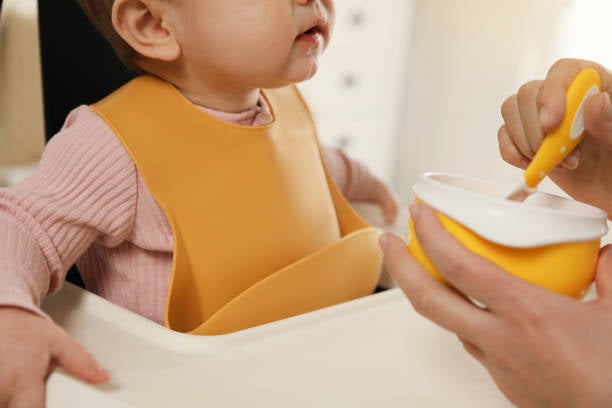How to Choose the Right Size Silicone Baby Bib for Your Growing Infant?
Choosing the right size silicone baby bib for your growing infant is an important decision that can greatly impact their comfort and overall feeding experience. With so many options available, it can be overwhelming to know which bib size is best suited for your little one. In this article, we will guide you through the process of selecting the perfect bib size to ensure your growing infant stays clean and comfortable during mealtime.
1. Understanding the Importance of a Proper Fit
Before diving into the details of choosing the right size silicone baby bib, it's crucial to understand why a proper fit is essential. A well-fitting bib not only protects your baby's clothes from spills and stains but also allows them to move and explore comfortably during feeding. It should cover the entire front area, including the shoulders, chest, and lap, to provide maximum protection.
2. Consider Your Baby's Age and Development
When selecting a silicone baby bib, it's important to consider your baby's age and developmental stage. Younger infants may require smaller bibs that fit snugly around their necks, while older babies may benefit from larger bibs that provide more coverage as they become more independent in feeding themselves.
3. Measure Your Baby's Neck Circumference
Measuring your baby's neck circumference is a simple yet effective way to determine the appropriate bib size. Using a flexible measuring tape, gently wrap it around the base of your baby's neck and note down the measurement. This will help you choose a bib with a neck opening that is neither too tight nor too loose.
4. Consider the Bib's Length and Width
The length and width of the silicone baby bib are crucial factors to consider. A bib that is too short may not provide adequate coverage, while one that is too wide may restrict your baby's movement. Look for bibs that have adjustable fasteners or multiple size options to ensure the perfect fit for your growing infant.
5. Check for Adjustable Features
Many silicone baby bibs come with adjustable features such as snap buttons or Velcro closures, allowing you to customize the fit according to your baby's needs. These adjustable features ensure that the bib can accommodate your baby's growth and provide a secure and comfortable fit throughout their feeding journey.
6. Assess the Material and Durability
When selecting a silicone baby bib, consider the material and durability. Opt for bibs made from high-quality silicone that is BPA-free, food-grade, and easy to clean. Look for bibs that are dishwasher safe and resistant to stains, odors, and mold. This will ensure that the bib lasts longer and remains safe for your growing infant.
7. Seek Recommendations and Reviews
Reading recommendations and reviews from other parents can provide valuable insights when choosing the right size silicone baby bib. Look for feedback on the bib's fit, durability, ease of cleaning, and overall performance. This information can help you make an informed decision and select a bib that meets your baby's needs.
8. Consider Your Baby's Feeding Habits
Your baby's feeding habits can also influence the bib size you choose. If your baby is a messy eater or tends to move a lot during meals, you may want to opt for a larger bib with more coverage. On the other hand, if your baby is more controlled and less messy, a smaller bib may be sufficient.
9. Evaluate the Ease of Cleaning
The ease of cleaning is an important factor to consider when choosing a silicone baby bib. Look for bibs that are dishwasher safe or can be easily wiped clean. Avoid bibs with intricate designs or hard-to-reach areas that may trap food particles, making cleaning more challenging.
10. Consider Your Budget
Lastly, consider your budget when selecting a silicone baby bib. While there are many options available at different price points, it's important to prioritize quality and functionality over cost. Investing in a durable and well-fitting bib will ensure your baby's comfort and save you from constantly replacing cheaper, lower-quality alternatives.

